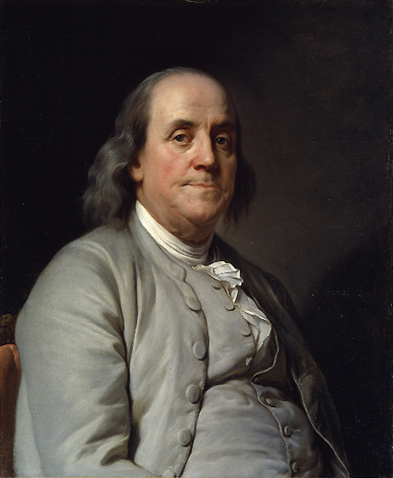Regulation
Emmett Center Files Amicus Brief in U.S. Supreme Court GHG Case on Behalf of South Coast Air District
UCLA’s Emmett Center filed an amicus curiae brief yesterday in Utility Air Regulatory Group (UARG) v. EPA, the U.S. Supreme Court case that will determine whether EPA’s greenhouse gas emissions rules under the Prevention of Significant Deterioration section of the Clean Air Act are valid. Arguing on behalf of the South Coast Air Quality …
CONTINUE READINGLightbulb Wars : The Saga Continues
Republicans win a largely symbolic victory for an obsolete technology.
Among the sleeper provisions of the new budget deal is a ban on enforcing federal lightbulb standards. This is a great example of symbolic politics — it makes Tea Party Republicans happy, has limited practical effect, and makes little policy sense. Or to put it another way, the enforcement ban is a dumb thing to …
Continue reading “Lightbulb Wars : The Saga Continues”
CONTINUE READINGAn Ounce of Prevention
Can inherently safer technology save us from chemical accidents and terrorists?
As Benjamin Franklin famously said, “an ounce of prevention is worth a pound of cure.” Franklin’s comment, originally made in reference to home fire safety, is characteristically timeless. Today, many are looking to the principle of prevention as a way to reduce the incidence and severity of chemical plant disasters. The threat of chemical disaster …
Continue reading “An Ounce of Prevention”
CONTINUE READINGTen Energy Stories to Watch in 2014
What will shake the energy world this year?
In our energy law classes at Cal, we like to start the day by talking about Energy in the News. The media never fails us. Every day, there are multiple energy-related stories of significance touching on resource development, new technologies, policy shifts, jobs, regional politics, prices, international relations, or the environment. Once you start looking …
Continue reading “Ten Energy Stories to Watch in 2014”
CONTINUE READINGU.C. Davis’ “ESA at 40” Conference Now Available for Online Viewing
The federal Endangered Species Act turned 40 this past weekend. On December 28, 1973, then-President Richard Nixon signed into law what has proven to be the nation’s most controversial environmental law. So it’s an especially appropriate time to alert Legal Planet readers that a major, recent conference on the ESA sponsored by the U.C. Davis …
Continue reading “U.C. Davis’ “ESA at 40” Conference Now Available for Online Viewing”
CONTINUE READINGThe Food Safety Paradox
As Tom McGarity documents in his recent book, Freedom to Harm, the American food safety system is in disarray. You’d think we’d all be wiped out by food poisoning. Yet, the rate of sickness caused by bad food seems to have remained constant since the mid-nineties. What’s going on? McGarity and others are right about the …
Continue reading “The Food Safety Paradox”
CONTINUE READINGWith Utility Power Purchases, Does the Environment Matter?
When does the approval of a contract trigger environmental review?
If an electric utility asks regulators to approve a contract to purchase power from someone else’s power plant, should the regulators consider the environmental implications before saying yes or no? Of course they should. But let me ask the question again, using a bit of California legalese: Does a decision by the California Public Utilities …
Continue reading “With Utility Power Purchases, Does the Environment Matter?”
CONTINUE READINGWhy Pollution Regulations Aren’t Taxes
Opponents of environmental regulations love to call them hidden taxes. But constant repetition doesn’t make this idea true.
If you’ve seen a statement that regulations are hidden taxes, that’s not too surprising. Googling “regulation hidden taxes” produces over three million hits. But in fact, pollution regulations and taxes are completely different. The reason is simple. A tax removes value from the private sector. Environmental regulations simultaneously remove value from one part of …
Continue reading “Why Pollution Regulations Aren’t Taxes”
CONTINUE READINGA Bad Hollywood Ending for Smart Growth — What’s the Sequel?
Judge rules the downtown plan for transit-oriented growth is fundamentally flawed
Smart growth advocates are lamenting a judge’s decision yesterday to toss out the environmental impact report (EIR) on Hollywood’s years-in-the-making plan for higher-density growth around the city’s subway stops. Hollywood is one of the few communities in California willing to increase growth around transit stops and along transit corridors, and the demand for housing and …
Continue reading “A Bad Hollywood Ending for Smart Growth — What’s the Sequel?”
CONTINUE READINGState Releases New Fracking Regulations Amid SB 4 Criticism, Controversy
DOGGR also wades into CEQA while environmental community questions wisdom and effects of new State law
California’s Division of Oil, Gas & Geothermal Resources (DOGGR) has released its proposed regulations governing hydraulic fracturing pursuant to Senate Bill 4, controversial legislation signed into law this September. DOGGR’s November 15 public notice begins its formal rulemaking process and marks the start of a 60-day public comment period for the new rules. DOGGR also …
Continue reading “State Releases New Fracking Regulations Amid SB 4 Criticism, Controversy”
CONTINUE READING












